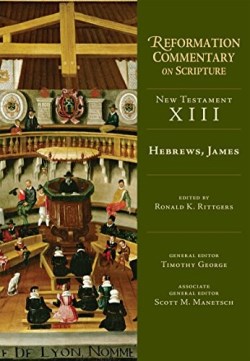Ronald Rittgers
Showing the single result
-
Hebrews James
$64.99Acknowledgments
Abbreviations
A Guide To Using This Commentary
General Introduction
Introduction To Hebrews, James
Commentary On Hebrews, James
Map Of Europe At The Time Of The Reformation
Timeline Of The Reformation
Biographical Sketches Of Reformation-Era Figures And Works
Bibliography
Author And Writings Index
Subject Index
Scripture IndexAdditional Info
“Faith is the assurance of things hoped for, the conviction of things not seen,” wrote the author of the epistle to the Hebrews.Reflecting on this verse and the epistle’s description of the high priestly and sacrificial ministry of Jesus Christ, Swiss Reformed theologian and exegete Heinrich Bullinger defined faith as “the most constant mental certainty, which rests on those things to which all our hope is directed, namely . . . the expectation of salvation and the recognition of our truly blessed God and Savior, who is the inexhaustible fountain of all good.”
Both the epistle to the Hebrews and the epistle of James generated much discussion and debate during the Reformation period. The author of the former is unknown, and the latter was dismissively labeled as an “epistle of straw” by Martin Luther. Yet both of these letters have proven to be essential for Christians-during the Reformation era and today-who seek to understand the significance of the work of Jesus Christ and what it means to follow him.
In this volume of the Reformation Commentary on Scripture, church historian and theologian Ronald K. Rittgers guides readers through a diversity of early modern commentary on both Hebrews and James. Readers will hear from familiar voices as well as lesser-known figures from a variety of theological traditions, including Lutherans, Reformed, Radicals, Anglicans, and Roman Catholics.
Drawing on a variety of resources-including commentaries, sermons, treatises, and confessions-much of which appears here for the first time in English, this volume provides resources for contemporary preachers, enables scholars to better understand the depth and breadth of Reformation commentary, and helps all who seek the assurance and conviction that is found in Christ alone.
Add to cartin stock within 3-5 days of online purchase









